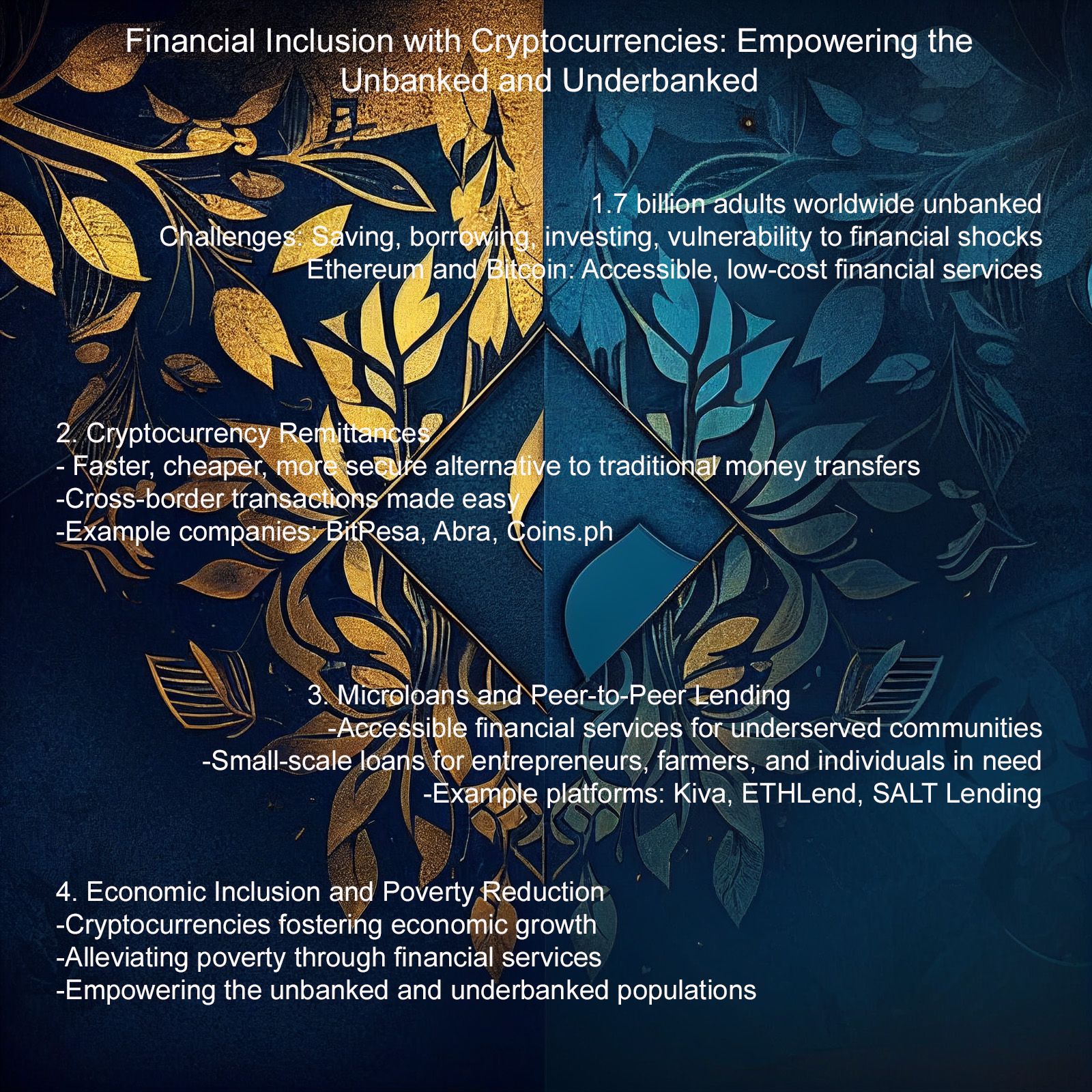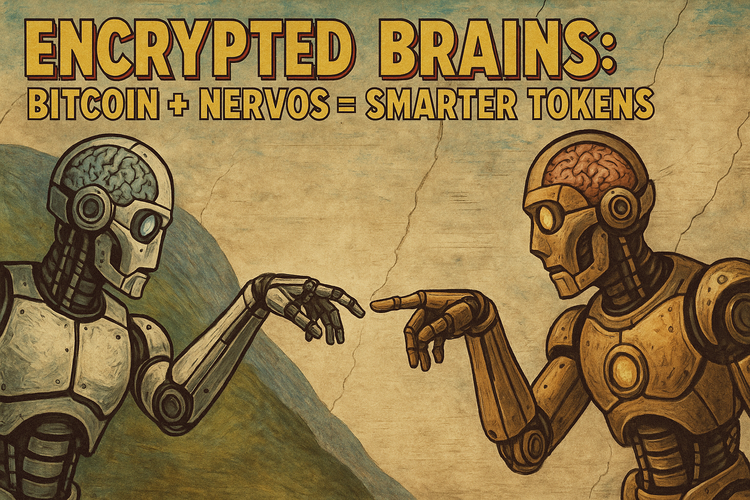Cryptocurrencies for Social Impact: How Ethereum and Bitcoin are Transforming Philanthropy and Empowering Communities

Cryptocurrencies such as Ethereum and Bitcoin have been a hot topic for years, primarily due to their volatile prices and potential for massive returns on investment. However, the true power of these digital currencies lies not in their speculative nature but in their ability to drive meaningful social change and empower communities around the world. In this article, we delve into the innovative ways that Ethereum and Bitcoin are being used to revolutionize philanthropy, foster economic inclusion, and support environmental sustainability.
As we delve deeper into this article, we will explore these themes in greater detail and highlight inspiring case studies that demonstrate the transformative potential of Ethereum and Bitcoin for social good. In doing so, we aim to inspire and encourage the cryptocurrency community to embrace the responsible and ethical use of blockchain technology in order to address the world's most pressing challenges and build a better future for all.
Blockchain for Philanthropy
The world is facing an array of complex social, economic, and environmental challenges, from climate change and poverty to inadequate access to healthcare and education. Traditional methods of addressing these issues, such as government aid and non-profit organizations, have achieved some success, but many problems remain unsolved. As we enter a new era of technological innovation, digital currencies like Ethereum and Bitcoin present an opportunity to rethink and redesign the way we approach philanthropy and community development.

At their core, cryptocurrencies are based on blockchain technology – a decentralized, secure, and transparent digital ledger that allows for the recording of transactions without the need for intermediaries. This feature of blockchain technology offers a unique advantage for social impact initiatives, as it enables unprecedented levels of transparency and accountability in charitable giving. By reducing the risk of corruption, fraud, and mismanagement, cryptocurrencies can help ensure that funds donated to worthy causes reach their intended beneficiaries and are used efficiently.
Moreover, the decentralized nature of cryptocurrencies like Ethereum and Bitcoin allows for the creation of innovative, community-driven philanthropic models. Decentralized Autonomous Organizations (DAOs), for example, are blockchain-based entities that can be programmed to manage resources and make decisions autonomously or based on the consensus of their members. DAOs can be utilized to facilitate grassroots philanthropy, enabling individuals from all walks of life to pool their resources, collaborate on solutions, and collectively decide how to allocate funds to the most effective projects.
Cryptocurrency donations have gained traction in recent years, with more and more charities accepting Bitcoin and Ethereum as alternative methods of giving. This trend allows donors to easily track their contributions on the blockchain, ensuring that their funds are used for the intended purpose. High-profile philanthropists, such as the anonymous Pineapple Fund donor, have also popularized the idea of donating cryptocurrency to support social causes.
Blockchain-based charities are leveraging the power of decentralization to enhance transparency, reduce overhead costs, and streamline operations. Platforms like Giveth, Alice, and Binance Charity Foundation have emerged as leaders in this space, offering innovative solutions that encourage trust between donors, beneficiaries, and organizations.
Decentralized Autonomous Organizations (DAOs) have the potential to revolutionize the philanthropic landscape by creating community-driven models that prioritize inclusivity and collective decision-making. DAOs like The Giving Block and Endaoment enable individuals to pool resources, collaborate on projects, and vote on the allocation of funds. By utilizing DAOs for philanthropy, we can empower communities and foster grassroots activism.
Financial Inclusion with Cryptocurrencies
Beyond philanthropy, cryptocurrencies have the potential to transform the lives of millions of people who lack access to traditional financial services. An estimated 1.7 billion adults worldwide remain unbanked, making it difficult for them to save, borrow, or invest money, and leaving them vulnerable to financial shocks. Ethereum and Bitcoin can help bridge this gap by providing accessible, low-cost financial services to the unbanked and underbanked populations. From facilitating remittance transfers and microloans to enabling peer-to-peer lending, cryptocurrencies can play a vital role in fostering economic inclusion and reducing poverty.

Cryptocurrency remittances have become an increasingly popular alternative to traditional money transfer services, providing a faster, cheaper, and more secure way for people to send money across borders. Companies like BitPesa, Abra, and Coins.ph are leveraging blockchain technology to enable low-cost remittance transfers, reducing the financial burden on migrant workers and their families.
Microloans and peer-to-peer lending platforms powered by Bitcoin and Ethereum are also gaining momentum, offering accessible financial services to underserved communities. Platforms like Kiva, ETHLend, and SALT Lending facilitate small-scale loans for entrepreneurs, farmers, and individuals in need, fostering economic growth and alleviating poverty.
Ethereum and Bitcoin for Environmental Sustainability
Finally, cryptocurrencies can also contribute to environmental sustainability efforts, as blockchain technology enables the development of innovative solutions to pressing ecological challenges. For instance, blockchain-based platforms can facilitate renewable energy trading and carbon credit management, promoting more sustainable energy practices and reducing greenhouse gas emissions. Furthermore, the cryptocurrency mining industry is gradually adopting more environmentally-friendly practices, such as utilizing renewable energy sources and developing energy-efficient mining algorithms.

Blockchain-based platforms for renewable energy trading, such as Power Ledger, LO3 Energy, and WePower, allow individuals and organizations to buy, sell, and trade clean energy directly. This decentralized approach promotes the adoption of renewable energy sources and reduces reliance on fossil fuels.
Carbon credit management can also benefit from blockchain technology, as platforms like Veridium, Poseidon, and Nori create transparent and efficient markets for trading carbon credits. These platforms encourage companies to offset their carbon emissions and contribute to global climate change mitigation efforts.
Environmental impact bonds are another emerging use case for cryptocurrencies, providing innovative financing mechanisms for sustainable projects. These bonds, which are tied to specific environmental outcomes, can be tokenized and traded on blockchain platforms, attracting investment and promoting green initiatives.
Social Entrepreneurship on the Blockchain
Tokenization of social impact projects and investments can revolutionize the way social entrepreneurs access funding and resources.
Social impact tokens offer an alternative method for raising funds, enabling social entrepreneurs to tokenize their projects and receive investment directly from the community. Platforms like ConsenSys Social Impact and Neufund are driving this trend, providing tools and resources for social impact projects to issue tokens and raise capital.
Blockchain-based social enterprises are emerging as pioneers in leveraging cryptocurrencies for social good. Examples include Wala, a financial services platform that addresses financial exclusion in Africa, and bext360, which uses blockchain to improve transparency in the supply chain of commodities like coffee and cocoa. These innovative ventures showcase the transformative potential of cryptocurrencies in driving social change.
As the crypto space matures, more entrepreneurs are embracing the concept of "crypto for social good." However, challenges remain, such as regulatory uncertainty and a lack of mainstream adoption. The success of blockchain-based social enterprises will depend on the ability of the cryptocurrency community to promote responsible and ethical use of this technology.
Conclusion
The transformative potential of Ethereum and Bitcoin in driving social change is immense. From revolutionizing philanthropy and fostering economic inclusion to promoting environmental sustainability and supporting social entrepreneurship, cryptocurrencies can play a critical role in addressing the world's most pressing challenges.
As the cryptocurrency community continues to grow and mature, it is essential to recognize and embrace the responsible and ethical use of blockchain technology. By leveraging the power of decentralization, transparency, and innovation, we can create a more equitable and sustainable future for all.
In conclusion, cryptocurrencies like Ethereum and Bitcoin have the potential to go far beyond their speculative nature and deliver tangible benefits to individuals, communities, and the environment. By focusing on the transformative power of these digital currencies, we can inspire a new wave of social impact initiatives that leverage the best of what blockchain technology has to offer. And by optimizing our content for SEO, we can ensure that these inspiring stories reach a wider audience, motivating more people to join the movement for a better world.
Please share your thoughts on the article by clicking below Emoji ...
Disclosure
*The information provided on this cryptocurrency blog is for educational and informational purposes only and should not be construed as financial, investment, or trading advice. The authors, contributors, and administrators of this blog are not licensed financial professionals and do not hold any formal qualifications in the fields of finance, economics, or cryptocurrencies.
The content on this blog is based on the authors' personal opinions, experiences, and research, and should not be considered as professional financial guidance. While we strive to provide accurate, up-to-date, and reliable information, we cannot guarantee the accuracy or completeness of the information presented. Cryptocurrency markets are highly volatile, and investments in cryptocurrencies and related assets carry a substantial risk of loss.
Before making any financial decisions or investments, you should consult with a qualified financial advisor or perform your own research and analysis. Any actions taken based on the information provided on this blog are at your own risk, and the authors, contributors, and administrators of this blog cannot be held liable for any losses or damages resulting from the use of the information found herein.
By using this blog, you acknowledge that you have read and understood this disclosure and agree to assume full responsibility for any decisions or actions you take based on the information provided.*








